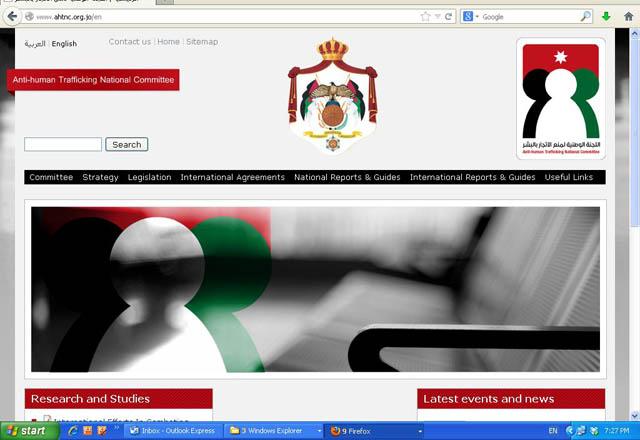You are here
Efforts to safeguard rights of domestic helpers paying off — official
By Laila Azzeh - Aug 30,2015 - Last updated at Aug 30,2015
AMMAN — Measures taken by Jordan to safeguard the rights of domestic workers, who reached more than 49,000 by the end of 2014, are "very advanced" and are contributing to improving the overall human rights situation in the country, according to an official source.
The new measures, which also seek to combat human trafficking, are believed to be providing better protection to domestic workers and a work environment in line with international standards, according to Bassel Tarawneh, the government coordinator on human rights.
The new regulations give the labour minister the authority to immediately close down domestic helper recruitment agencies proven to violate human rights, while work is under way to establish shelters for those who face problems with their employers.
"The shelters will accommodate the workers until their problems are resolved by either working for another employer or returning to their countries," according to a statement received by The Jordan Times on a report examining the Labour Ministry's human rights measures.
In addition, the ministry has revisited the unified contract for domestic workers to safeguard the rights and duties of all involved parties in cooperation with their embassies.
The ministry has also reached out to the Public Security Department (PSD) to urge police stations not to return domestic helpers to their employers unless through a representative from their respective embassies.
The measures also include initiating a hotline in five languages for domestic labourers to receive their complaints, said the report.
"These very advanced procedures are part of the government's comprehensive approach towards improving the human rights system," Tarawneh told The Jordan Times over the phone on Sunday.
In the report, he highlighted that efforts are under way to amend legislation governing forced labour in cooperation with the Anti-Human Trafficking National Committee.
A total of 14,382 nationals of the Philippines, 5,759 Sri Lankans and 22,433 Bangladeshis were working as domestic helpers in Jordan in 2014, according to the report.
It also indicated that a total of 58 cases of human trafficking were referred to the prosecutor general in 2014, compared to 27 similar cases in 2013.
The cases involved 123 perpetrators and 165 victims, including 121 females.
They varied from organ removal (five cases) and sexual exploitation (10), to forced labour for domestic helpers (34) and forced work (34).
In addition, 258 cases of labour disputes were examined by courts last year.
The report highlighted that women and guest workers are the most vulnerable to human trafficking crimes and forced labour and that inspectors at the PSD human trafficking unit carry out visits to recruitment offices to track down cases of forced labour and human trafficking.
The unit has also been accommodating human trafficking victims in cooperation with the Jordanian Women's Union, offering shelter to 122 women last year.
"The new measures are deemed as an advanced step to address imbalances that stood in the way of combating human trafficking," said Tarawneh, adding that the procedures also contributed to enhancing the relationship between the government and local, regional and international human rights organisations.
Meanwhile, the coordinator cited a plan to be applied in the coming four months that entails reaching out to governorates and remote areas to study the situation of human rights and present the findings to the prime minister.
In 2003, Jordan became the first Arab country to use a unified standard contract for domestic workers, and in 2008 it included domestic workers under its Labour Law.
In 2009, the government issued regulations specifying labour protection, such as a maximum of 10 hours of work per day, a minimum of eight hours of continuous rest daily, a weekly day of rest, and regular salary payments.
That same year the government ratified the Anti-Human Trafficking Law and formed a national committee to draw up policies and plans to prevent human trafficking.
Related Articles
AMMAN — The authorities on Tuesday were questioning a man who allegedly appeared in a video that went viral showing him beating up and abusi
AMMAN — Twenty-nine suspected cases of human trafficking were referred to court this year, with the suspected crimes ranging from sexual exp
Seventeen human trafficking cases involving 71 victims were registered in Jordan 2013, according to a report released on Thursday.

















